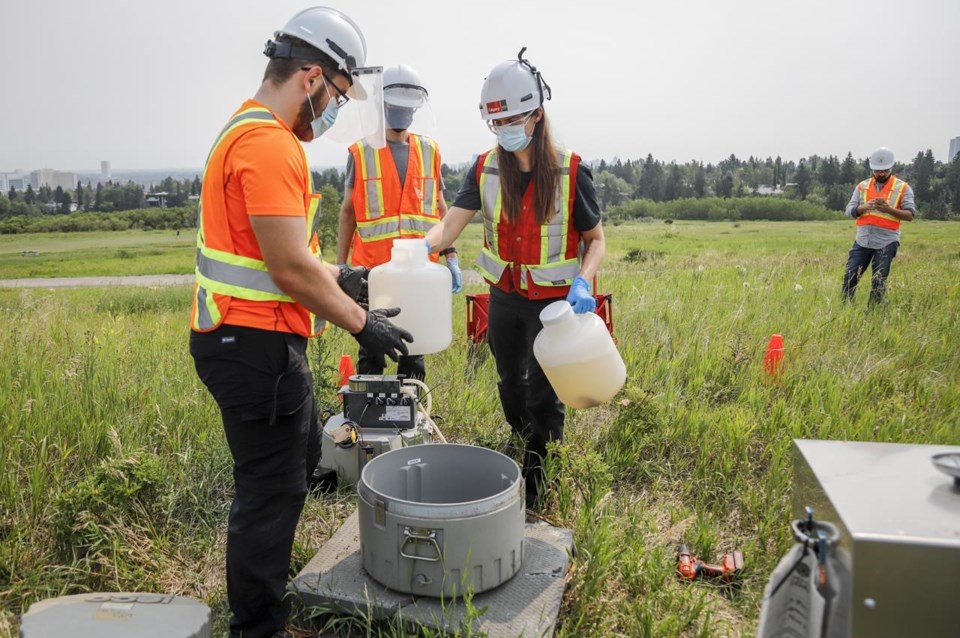CALGARY — One man's waste is another man's treasure.
In this case, the waste is the kind produced by people and researchers at the University of Calgary said a pilot project testing the city's water is providing a valuable tool in the fight against COVID-19.
"It's similar to how detectives look for DNA evidence at a crime scene. We're looking for the RNA signal that the virus that causes COVID leaves behind in the wastewater," said Kevin Frankowski, co-leader of the COVID-19 wastewater monitoring project at the university's Cumming School of Medicine.
"So we're not looking for the virus itself — we're looking for the genetic fingerprint that it leaves behind."
The research team provided a demonstration Wednesday in retrieving samples. A computer device retrieves a steady supply of wastewater from a modified manhole over a 24-hour period.
What's left is a large water bottle full of yellowish liquid.
"That helps augment the data that we collect through other public-health measures such as clinical testing to give us a better understanding of how cases are going up and down across a variety of scales from the city, down to individual neighbourhoods, down to individual buildings such as hospitals," Frankowski explained.
He said the system can help identify areas where there are outbreaks and could also identify rarer outbreaks such as measles and polio before they show up in the medical lab.
"We can actually have a six-day leading indicator prior to an outbreak occurring just because of the way the biology works with regards to the virus," he said.
"We'll pick it up in the wastewater before it shows up in clinical case numbers."
The one-year pilot project has come to an end, and Frankowski hopes to see the process adopted across the province.
"It's being done all across the world," he said. "Wastewater-based epidemiology is a rapidly emerging field and it's proven to be an excellent tool for augmenting our response to COVID."
Casey Hubert, an associate professor in biological sciences at the university who is co-leader of the project, said Calgary was the ideal location to test the science.
"All of the information that is contained when we go to the bathroom goes into the wastewater system, but that doesn't get diluted by stormwater," he said.
"What we are sampling contains really valuable information from all the people who go to the bathroom in this region. The wastewater testing really does offer an early warning signal."
This report by The Canadian Press was first published July 14, 2021.
Bill Graveland, The Canadian Press




